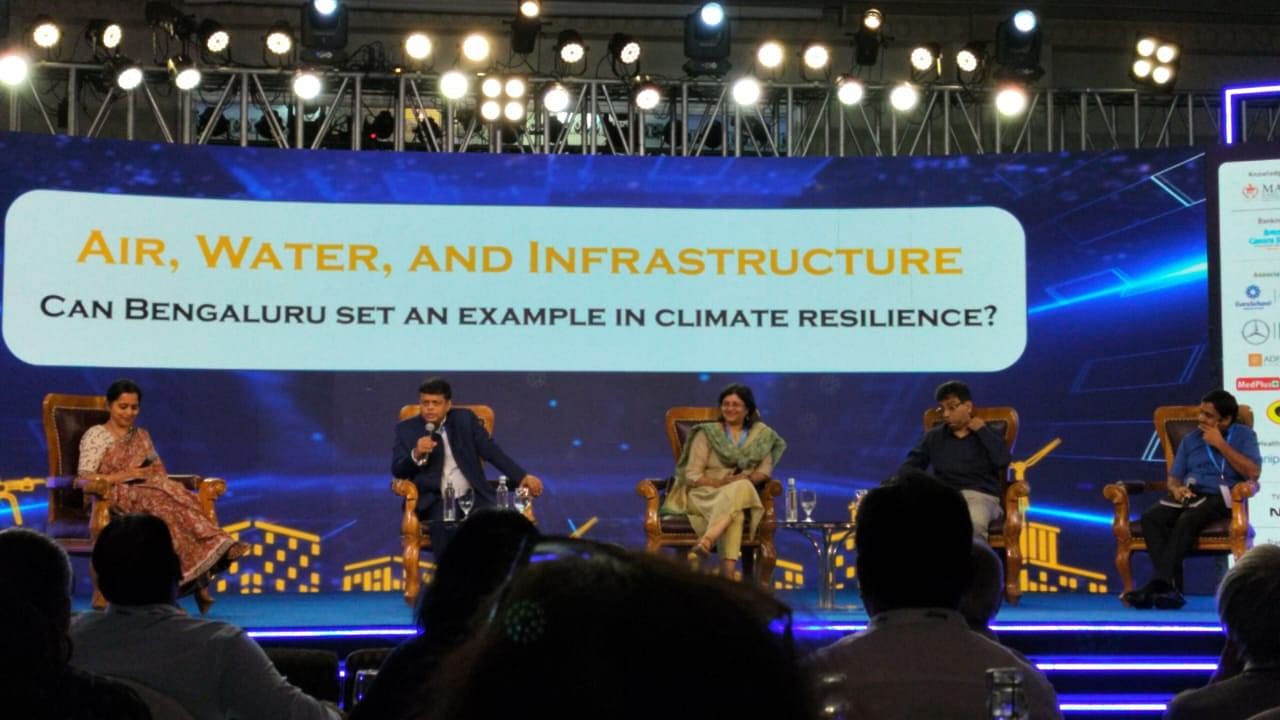
Panel on climate at the 2040 Summit. To the extreme left is Anitha Pailoor, moderator, and moving towards the right are the panelists.
Credit: DH Photo
Bengaluru: Bengaluru needs to make better use of treated water and implement more Rain Water Harvesting (RWH) systems to ensure the city does not run out of water, opined Tushar Girinath, Chief Commissioner, Bruhat Bengaluru Mahanagara Palike (BBMP).
Speaking on ‘Air, Water, and Infrastructure: Can Bengaluru set an example in climate resilience’ at the third edition of the DH Bengaluru 2040 summit, Girinath said that lack of water was the only limiting factor for Bengaluru’s growth.
“We have everything else required for the growth of the city and water is the critical factor owing to the high dependence on Cauvery. While the government is looking for an alternate source of water from Shimoga, there is an immediate need to focus on the use of treated water. Also, citizens should work alongside the government and install RWH systems,” he said.
He added that the authorities, through the Bengaluru Climate Action Plan (BCAP), are working on chalking out measures to beat climate change. However, Sudhira H S, Founder, Gubbi Labs, expressed concerns over the implementation of BCAP.
“There have been multiple plans chalked out in the last two decades. However, implementation of these plans is critical since they are guiding documents and cannot be enforced according to the law,” he said.
Addressing concerns over rapid infrastructure growth of the city and its impact on climate change, Aromar Revi, Director, Indian Institute of Human Settlements, pointed out that there was a need to build infrastructure to meet the environmental needs of the city.
“Not net zero but we should construct buildings that have a carbon negative footprint. This is the way forward,” he said.
Panelists also pointed out the need for various government agencies to work together.
“I think the biggest challenge is to bring all the government agencies to work together to implement the measures suggested to beat climate change. We have to go back to planting trees on the roadside and near construction sites since they reduce the particulate matter. Also, the ecosystem should be kept at the core of growth,” said Harini Nagendra, Professor of Ecology, Azim Premji University.
The panelists also spoke about the need to work closely with the citizens, the requirement for administrative reforms, use of public transport, and push for renewable energy to make Bengaluru climate resilient.